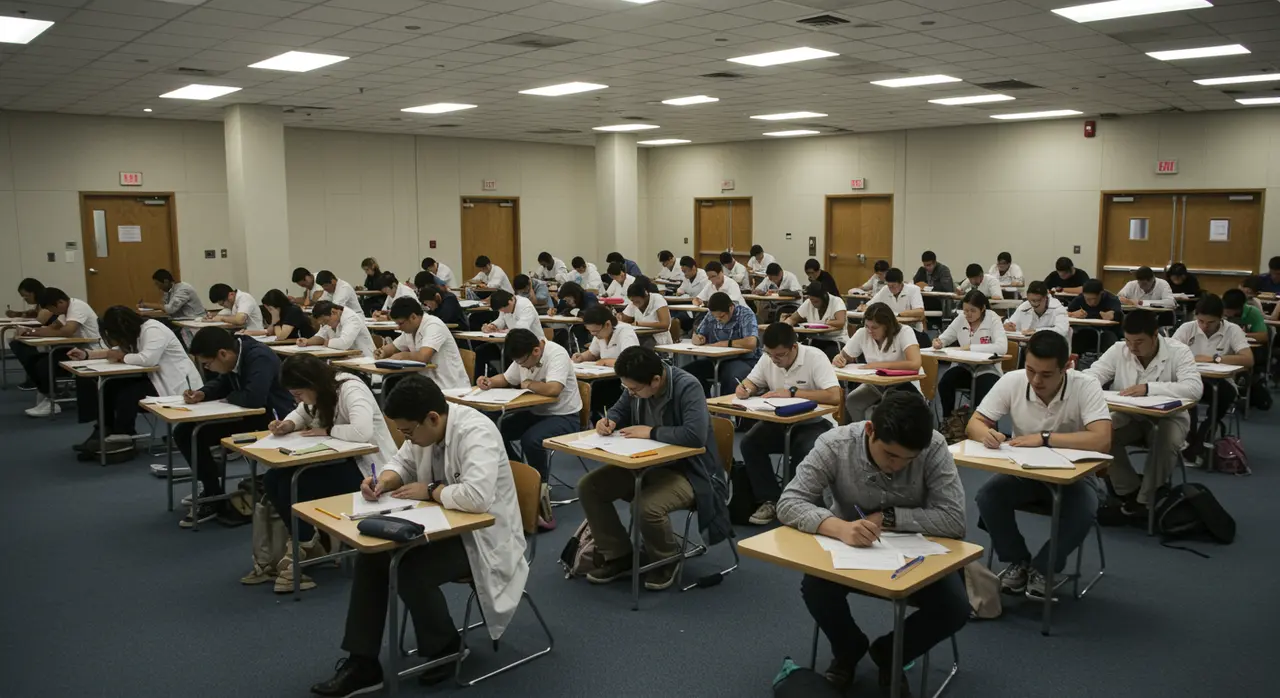NEET PG Two-Shift Format Sparks Controversy Among Medical Students and Associations
29 views
The government has swiftly dismissed a viral notice claiming that the NEET PG exam has been postponed to August 17, clarifying that the information is fabricated and urging candidates to rely solely on official updates from the National Board of Examination in Medical Sciences (NBEMS) website, natboard.edu.in. Meanwhile, the upcoming NEET PG 2025, scheduled for June 15, has sparked widespread discontent among medical students and professionals due to its two-shift format, with critics voicing apprehensions about fairness and transparency in the evaluation process.
A Growing Rift Over NEET PG's Two-Shift Format
As the NEET PG exam date approaches, it is not just the specter of misinformation that candidates must contend with, but also an intensifying debate surrounding the decision to conduct the test in two separate shifts. Traditionally held in a single session, the shift to a dual-slot format has drawn sharp criticism from medical associations such as the Federation of All India Medical Association (FAIMA) and the Resident Doctors’ Association (RDA). They argue that splitting the exam into two shifts introduces an uneven playing field, as normalization processes—designed to balance discrepancies in difficulty levels between shifts—may inadvertently compromise the integrity of the results.

At the heart of the controversy lies the question of transparency. Normalization, though a widely used statistical method in competitive exams, is not without its detractors. Critics contend that it lacks the precision required to account for subtle differences in question difficulty, leaving room for perceived bias or error. For many candidates, the stakes are too high to leave such outcomes to chance, as the exam serves as a gateway to postgraduate medical education and, by extension, their future careers.
Doctors and MBBS students have also expressed concerns over logistical challenges and potential security vulnerabilities inherent in a two-shift system. The possibility of exam content being leaked or tampered with between shifts, though not substantiated, remains a persistent worry in a high-pressure environment where trust in the process is paramount. Calls for reverting to a single-shift format have grown louder, with medical associations urging NBEMS to reconsider its decision in the interest of fairness and uniformity.
Balancing Modernization with Fairness: A Delicate Act
The NEET PG controversy underscores a broader tension between modernization in examination practices and the need to uphold fairness in high-stakes testing. Proponents of the two-shift system argue that it allows for better management of resources and accommodates a growing number of candidates, reflecting the increasing demand for postgraduate medical seats in India. However, such logistical advantages appear to pale in comparison to the anxiety it has generated among examinees, who are already burdened by the rigorous demands of medical education.
The government and NBEMS now find themselves in a precarious position, tasked with addressing the concerns of stakeholders while ensuring the examination process remains efficient and secure. The debunking of the fake notice serves as a reminder of the importance of clear and timely communication, especially in an era where misinformation can spread like wildfire. Yet, it also highlights the necessity of fostering trust in institutional decisions, a task made all the more challenging when those decisions are met with widespread dissent.
As the June 15 exam date draws near, the debate over NEET PG’s format offers a glimpse into the evolving challenges of administering large-scale competitive exams in a digital age. While technological advancements have made such tests more accessible and scalable, they have also introduced complexities that demand careful navigation. Striking the right balance between modernization and fairness will be critical, not just for NEET PG, but for the broader landscape of competitive examinations in India.
In the end, the controversy surrounding NEET PG is emblematic of a deeper struggle to reconcile efficiency with equity in an increasingly competitive world. For the thousands of candidates preparing for the exam, the hope remains that their efforts will be judged on merit alone, free from the shadows of normalization debates and logistical concerns. Whether the authorities can rise to meet these expectations will be a test in itself—one that may well shape the future of medical education in the country.